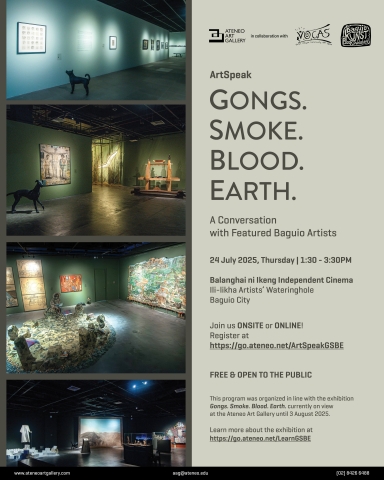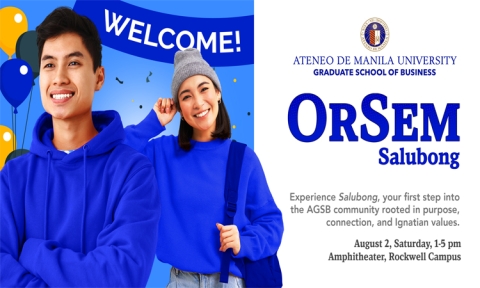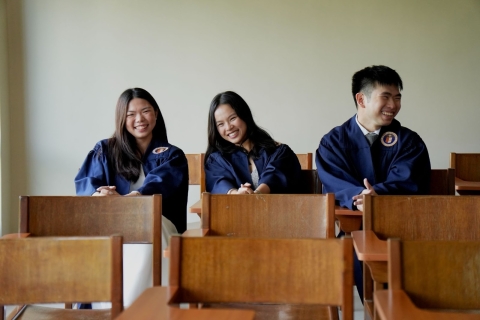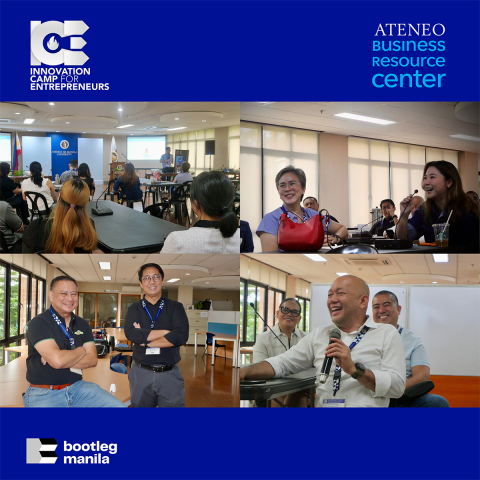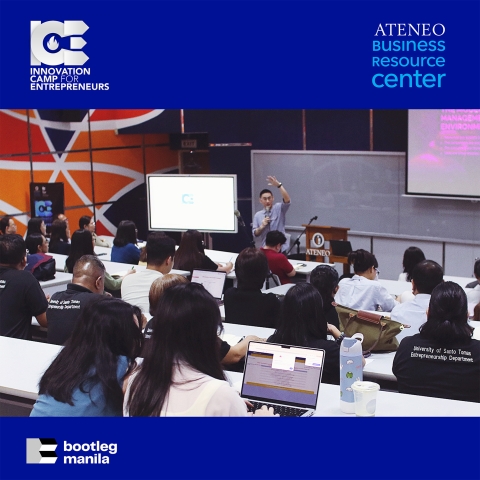Bridging business, culture, and sustainability: Integrating social impact with indigenous knowledge
07 Apr 2025
The Humanities and Management for Social Impact program is a collaboration between the Ateneo School of Humanities (SOH) and the John Gokongwei School of Management (JGSOM), with support from the Ateneo Center for Social Entrepreneurship (ACSEnt) through the Kwan Laurel Family endowment. Designed to foster interdisciplinary collaboration, the program equips students with critical skills to co-create sustainable, inclusive solutions for social enterprises. Courses such as IDES192, MKTG113, and MKTG114 involve humanities and management students to work in teams to tackle real-world business and design challenges, ranging from branding and marketing to social media strategy and storytelling.
One such effort is IDeaCO, a pilot program under ACSEnt that realizes interdisciplinary teamwork from SOH (Interdisciplinary Studies) and SOM (Communications Technology Management) student teams.
Among its first collaborators was MAD Travel, a social enterprise founded by Raf Dionisio that promotes regenerative travel and green economies to end poverty through community-based eco-entrepreneurship. MAD Travel advances this mission through immersive trips with tribal, farming, and fishing communities; gamified digital courses on climate and sustainability; in-person workshops on carbon reduction and green livelihoods; and the curation of local products and services, helping incubate community enterprises for long-term impact.
The IDeaCO team assigned to MAD Travel co-created communication tools—including language cards—that help bridge linguistic and cultural gaps between Indigenous communities and the public.
During a community exchange facilitated by the program, Aeta elder Nanay Nineng of El Caballo Falls shared her aspirations and reflections. The message is from Raf Dionisio, founder of the social enterprise MAD Travel, who asked Nanay Nineng about her thoughts on the journal and how their indigenous cooking compares with that of the Dumagats.
"I also want to have a journal book like this to show my indigenous cooking skills. We have a lot of materials, like bilukaw and bamboo, which are indigenous materials from our tribe. We find similarities among the Dumagats in their nilupak cooking. We also cook that. The only difference is in how we tie and present it. Ours is different. But it’s the same heart."
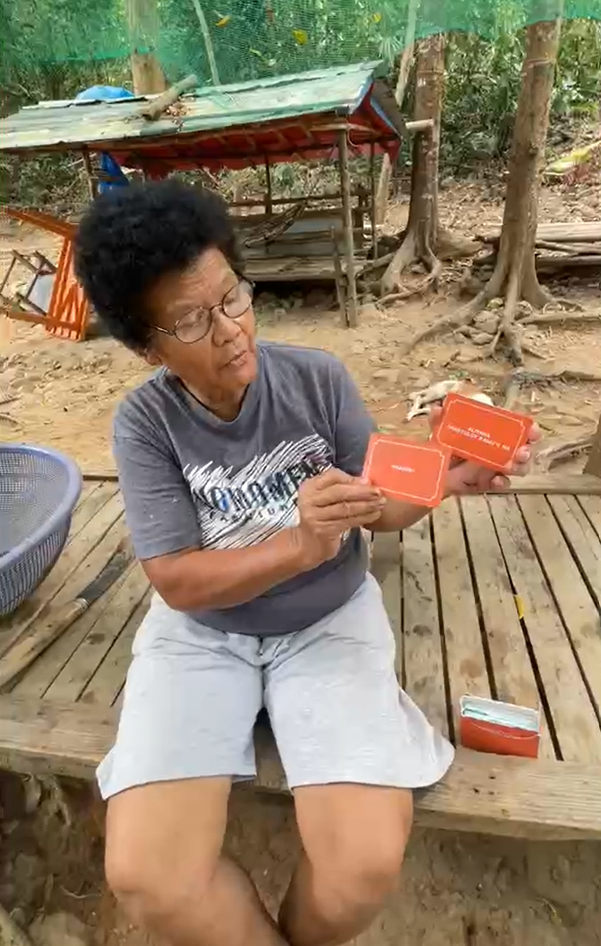
She warmly welcomed the use of language cards, appreciating their potential for cultural transmission:
"This is okay with me. I will teach it to my grandchildren—not just the language, but the feeling. Sometimes, my grandchildren would speak but talk in Tagalog, yet they did not speak it correctly. Often they would attempt to talk in Embala, but would not say it correctly….It is good that you guys have demonstrated care, concern, and compassion while developing these language cards. I hope this reaches all the young people of the tribes."
Nanay Nineng’s reflections echo a rooted desire for intergenerational learning and cultural resilience. She pointed to an upcoming Balik-kultura (Back to Culture) celebration on April 19—her birthday—where her community would gather deep in the forest, to show the language cards “where we’ll actualize them.” Her words carry a gentle urgency to preserve traditions before they disappear.
Her message aligns strongly with the core values of the Humanities and Management for Social Impact program: driving social entrepreneurship anchored on inclusive and community-rooted innovation.
Events like the Social Enterprise Marketing Summit and Demo Day allow student teams to co-create with communities. Winning teams receive seed funding to bring their ideas to fruition and align with financial viability, cultural relevance, and ecological responsibility.
As we train a new generation of socially responsible entrepreneurs, we must remember that true sustainability is more than profitability. It preserves memory and local knowledge and honors heritage in the communities in which it is rooted.


